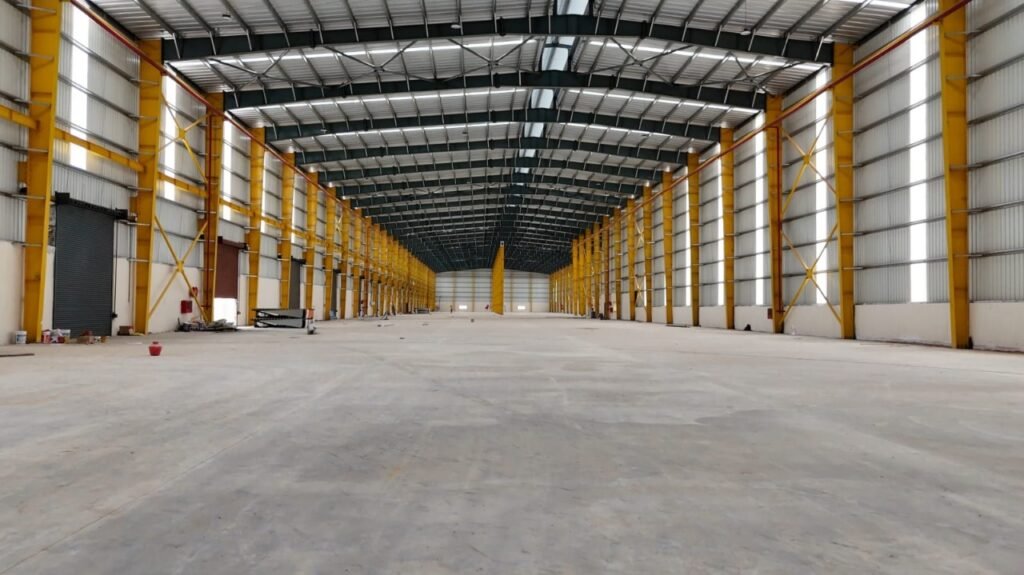If you’re thinking about renting a commercial warehouse for the first time, you’ve probably got a lot on your mind. Where should you start? How do you know if a warehouse is right for your business needs? And what about all the legal and practical considerations? Don’t worry—this guide has you covered.
Start with Your Needs
Before you even start browsing listings for a commercial warehouse for rent near me, take a moment to think about what you really need from a warehouse. Every business is different, so the perfect space for one might not work for another. Ask yourself:
- How much space do I actually need? Too small, and you’ll outgrow it quickly. Too large, and you’ll be paying for space you’re not using.
- What will I be storing? Different products require different storage conditions. Do you need climate control? Heavy-duty shelving?
- Do I need office space? Some warehouses come with built-in offices, which can be handy if you plan to have staff working on-site.
Once you have a clear picture of what you’re looking for, it’s easier to narrow down your options.
Location Is Everything
Where your warehouse is located can make or break your business operations. Think about how accessible the location is for your suppliers, employees, and customers. A few things to keep in mind:
- Proximity to major roads and highways – The easier it is to transport goods, the smoother your operations will run.
- Nearby amenities – Things like fuel stations, repair services, or even lunch spots for staff can be important.
- Local zoning laws – Not all areas allow all types of commercial activity. Make sure the warehouse you’re considering is zoned for your intended use.
Understanding Lease Terms
Commercial leases are often more complex than residential ones, and it’s essential to read the fine print. Here’s what to pay close attention to:
- Rent structure – Is it a flat monthly rate, or does it vary depending on usage?
- Additional costs – Some leases include utilities and maintenance, while others don’t. Be sure you understand exactly what you’ll be responsible for.
- Lease length – Are you locking yourself into a long-term contract, or is there flexibility to adjust as your business grows?
- Modifications – If you need to make changes to the space (like adding shelving or equipment), check whether your lease allows it.
Don’t hesitate to negotiate terms or consult a legal professional if anything seems unclear. A well-negotiated lease can save you headaches down the road.
Check the Facilities
Once you’ve found a potential warehouse, it’s time for a closer look. Never rent a space without seeing it in person first. Here’s what to inspect:
- Ceiling height – Make sure the vertical space suits your storage needs, especially if you plan to use tall shelving or equipment.
- Floor load capacity – If you’re storing heavy goods, ensure the flooring can handle the weight.
- Lighting and ventilation – A well-lit, well-ventilated space is safer and more pleasant to work in.
- Security features – Check for things like locks, cameras, or even on-site security personnel if needed.
- Loading docks – If you’re moving goods frequently, having a functional dock can save time and effort.
Take your time during the walkthrough and don’t ignore any potential red flags.
Budget Wisely
Renting a warehouse isn’t just about the monthly rent. You’ll need to account for several other expenses to avoid surprises:
- Utilities – Electricity, heating, and water costs can add up quickly, especially in larger spaces.
- Insurance – Commercial property insurance is usually required and protects both the building and your inventory.
- Maintenance and repairs – Some leases make you responsible for these costs, so make sure you budget accordingly.
- Equipment – Shelving, forklifts, or any other tools you need will also add to your costs.
Having a clear budget in mind will help you avoid overextending your finances.
Flexibility for Growth
One thing many first-time warehouse renters overlook is the need for future flexibility. While you might only need a modest space now, your business could grow rapidly, and you don’t want to be stuck in a warehouse that no longer fits your needs. Consider:
- Shorter leases or renewal options – These give you the freedom to upgrade or downsize if necessary.
- Expandable facilities – Some warehouses have room to add additional units or space.
- Scalable operations – Can you easily add more shelving, equipment, or staff if your business grows?
Planning for the future now can save you from needing to relocate later.
Work With Professionals
Don’t go through the process alone. Professionals like real estate agents who specialize in commercial properties can be invaluable. They understand the market, know how to negotiate, and can help you find a space that meets all your requirements. Similarly, consulting with a lawyer and an accountant ensures you’re making sound legal and financial decisions.
Make the Move
Once you’ve signed the lease and everything is in place, it’s time to get your warehouse up and running. Create a plan for moving inventory, setting up equipment, and training staff on-site. A smooth transition is key to minimizing disruptions to your operations.
Think Ahead
Renting your first warehouse is a big step, but it’s also an exciting opportunity to grow your business. By taking the time to understand your needs, budget wisely, and plan for the future, you’ll set yourself up for success. Ready to take the leap? With the right approach, that perfect warehouse is just waiting for you to move in.

